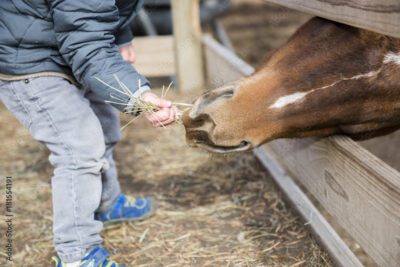By Christine Denise
Autism Mom and Contributing Writer for As You Are, a virtual clinic dramatically increasing access to early autism diagnostic services through the use of exclusively telehealth appointments
One of the first things that went through my mind when my son was first diagnosed was, what does the future hold?
I didn’t know much about autism, let alone what it was like for teenagers or even adults.
I found myself seeking out blogs, social media and other examples of thoughts and experiences of parents with older children or adults with autism.
Nothing has quite compared to the friendship I have struck up with Angie.
I contacted her regarding a story I was writing for a local publication about young mothers who became widows, and what helped them cope and carry on.
Angela was pregnant with her third child when her husband was killed in a car accident.
When we first talked, her son with autism was 17.
Mine was 6.
Our conversation completely shifted away from talking about raising children as a widow to raising a child into adulthood with autism. I tried to soak up every morsel of knowledge from her about the road she has traveled, the resources she has found for her son, and those I should just stop looking for because they don’t exist.
We also talked very candidly about the challenges this diagnosis brings to our entire families, and she invited me to be part of a Facebook messenger group chat with other women mothering children with autism.
Angela is the OG of the group, often chiming in to the discussions that randomly begin whenever someone feels the need to reach out and vent or throw out an idea about a new resource or is in search of one. After all, she’s been at this now for 20 years.
She graciously shared some of the lessons she’s learned along the way with me, and I’ve summarized them here for you:
Your child’s potential will amaze you.
Angie remembers the day her son was diagnosed. He was 2 ½ years old and had not been meeting his milestones. Over time, however, he did. It just wasn’t according to anybody’s schedule. One of the biggest hurdles was communication. Her son wasn’t speaking or showing any signs of progress in doing so for years. With time, though, he began to speak and found a way to communicate. It just didn’t happen on a typical timeline. Underestimating the potential of your child is something parents of typically developing children also face. Angie’s daughter, for example, struggled with anxiety for years. Her daughter lost friendships because of the paralysis she felt in socializing with others. Now, she’s off to college and living on her own. She still calls Angie multiple times a day, sometimes for nothing more than reassurance about the small things like what to wear for an outing. Her son calls her often, too. Sometimes to ask how long to put something in a microwave he’s cooked for himself before. She doesn’t mind. The fact that she’s able to communicate with both her son and daughter is a dream Angie never thought she’d realize sitting in that doctor’s office all those years ago.
It’s not the end of everything, just the beginning of a different life than we envisioned.
Angie’s husband struggled with accepting their son’s diagnosis, until a coworker shared he, too, was raising a son with autism. Soon, Angie’s husband connected with other parents who had children with autism and grew proud when he realized there was a life still ahead for his son even if it wasn’t the one he had always envisioned. Instead of becoming the next big football star, his son did well in aquatic therapy, horsemanship and other events for special needs children. Instead of mastering math or science, he celebrated his son’s victories in speech and ABA therapy. In other words, her husband learned those achievements and accomplishments are something to be proud of.
Don’t overdo it.
Angie said there wasn’t a therapy or special needs activity she didn’t get her son involved in. If there was a special needs horseback riding therapy program, he was in the saddle as often as possible. A Special Olympics event, he was in as many categories as possible. An aquatic therapy class? Well, you get the point. Looking back, Angie said her son and other children enjoyed all of the activities, but she wishes she would have lightened the load a little to prioritize the needs of her typical children’s calendars as well. She said therapy sessions and special events only helped her son so much, and spending time with his siblings, seeing them achieve their goals does, too. It also helps balance the dynamic of the entire family. Everyone deserves to feel like they’ve achieved, which contributes to the happiness at the center of the circle of people who are playing roles in raising a child with autism – including siblings. For my son, we are able to take him to basketball games and soccer games for his older brothers. He typically watches his iPad more than the games, but his brothers love to see him there and celebrate with him even though he doesn’t understand what’s going on. For some families, bringing a child with autism to a sporting event or other outing for a sibling is too much of a challenge. Angie says it’s important to make sure, though, that even if the child with autism can’t be there, the others in the family need to accomplish their goals, too.
Take advantage of respite care.
It’s very hard to leave your child with someone else, let alone a child with special needs. But Angie said it’s vital for families who have children with autism. Taking advantage of respite care, which is often paid for in many states, helps a married couple come back refreshed and ready to continue to care for a child with autism. It can help siblings connect with their parents one-on-one. That’s no different than a family raising typical children, who plan mommy/daughter dinner dates or father/son fishing trips, etc. At first, Angie said she felt like she was abandoning her son with autism, but grew to learn that it means you are doing what you need to do for your soul to keep caring for them. Respite care helps you continue to be the best version of yourself for the rest of the family, too. Angie said even now that her son is 20 years old, she knows her house will be a mess when she comes home after a night she took for herself. Her son struggles with putting anything away when he’s done with it. But she says cleaning the mess is worth it for his sake and hers.
You are the expert on your child, so share your knowledge with others.
Angie said she could see her son was making progress when ABA therapy helped create consistency in how she, her husband and her other children communicated with him. So, she got her family members together and taught them some of the basics, as well. Whenever I get the opportunity, mostly when other children seem unsure how to act around our son, I take the time to educate them about how to interact with him just as much as I teach our son how to interact with them. It’s a very simple conversation. I just tell them, “He doesn’t know how to talk yet, so he might grab you to get your attention.” And I tell my son to use his words and say “hi” when he meets someone new. That way everyone is learning something new.
Trust your gut.
You know what’s best for your child, but sometimes it’s easy to doubt yourself when they have a special need you don’t know much about and you’re dealing with experts who know more about therapy and autism based on years of education and clinical experience. But Angie says to remember this: no one spends as much time with your child as you do. No one knows their triggers and what makes them succeed as much as you. Trust in yourself. Angie said her family was concerned when she proposed enlisting her son in summer camps for children with special needs. She felt strongly about trying it, and she learned quickly it helped her son find his people and experience friendship. It gave her the confidence she needed to make decisions for him. It was the same with various therapies her son would try. She learned therapists and therapy is beneficial, but she says to not feel like you have to do it all, all the time. Bottom line with any kid, all they need is you and your time.
Do you have questions about your child’s development? The team at As You Are provides useful autism screening and diagnostic evaluations for kids 16 months to 10 years old via telehealth appointments.
Disclaimer: I am not a medical professional. This is a sponsored blog post, but all opinions are my own.


















